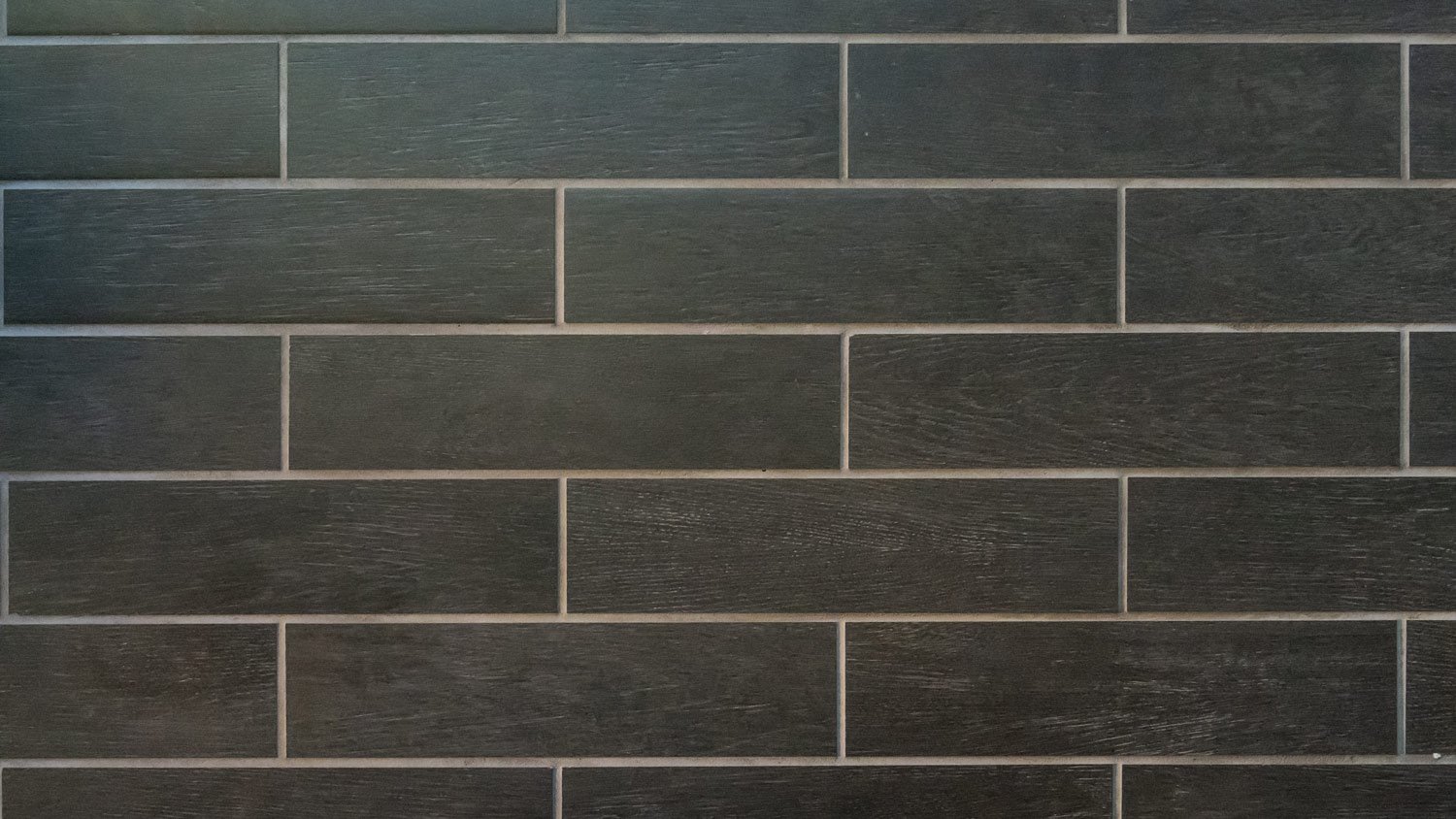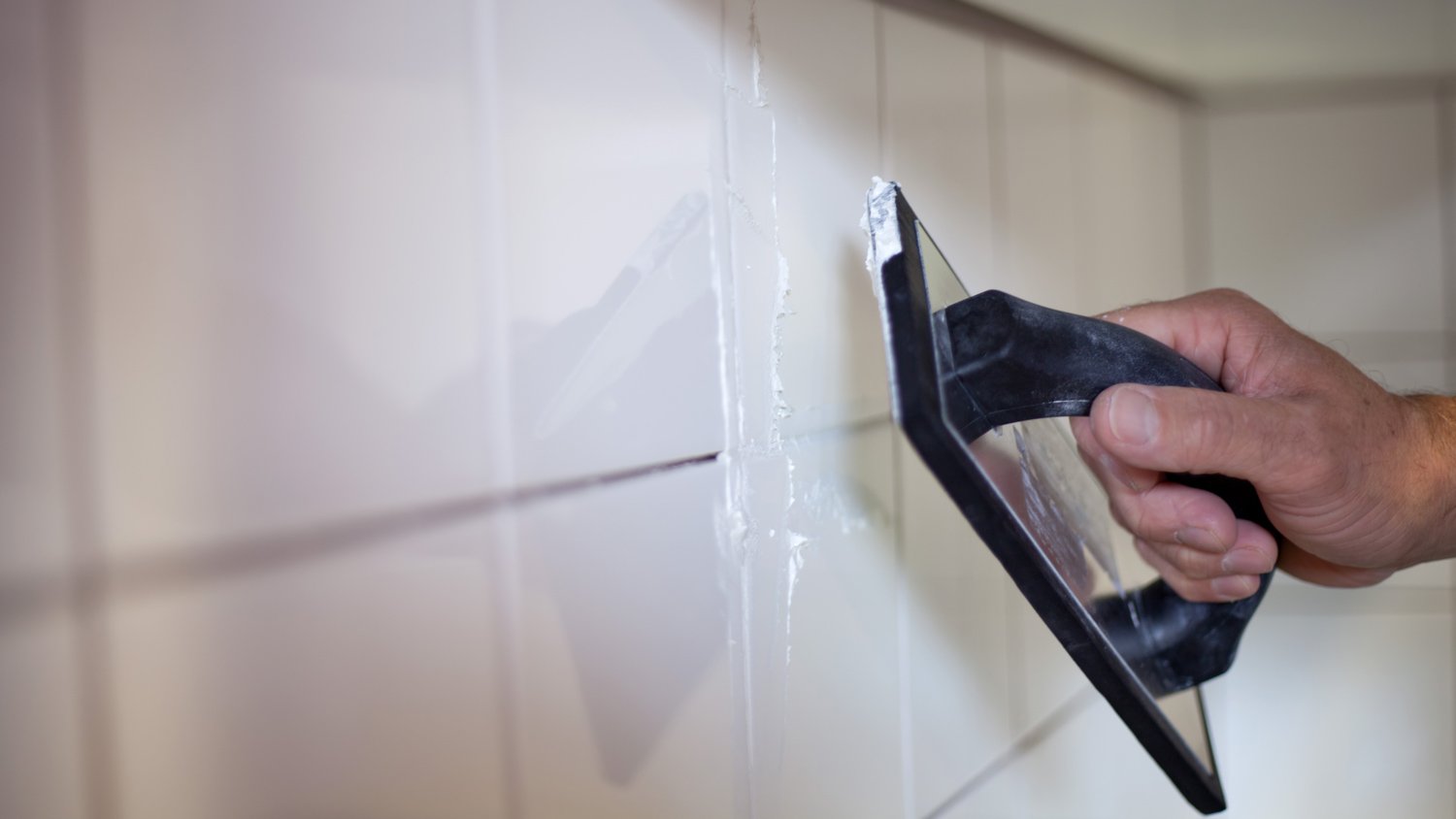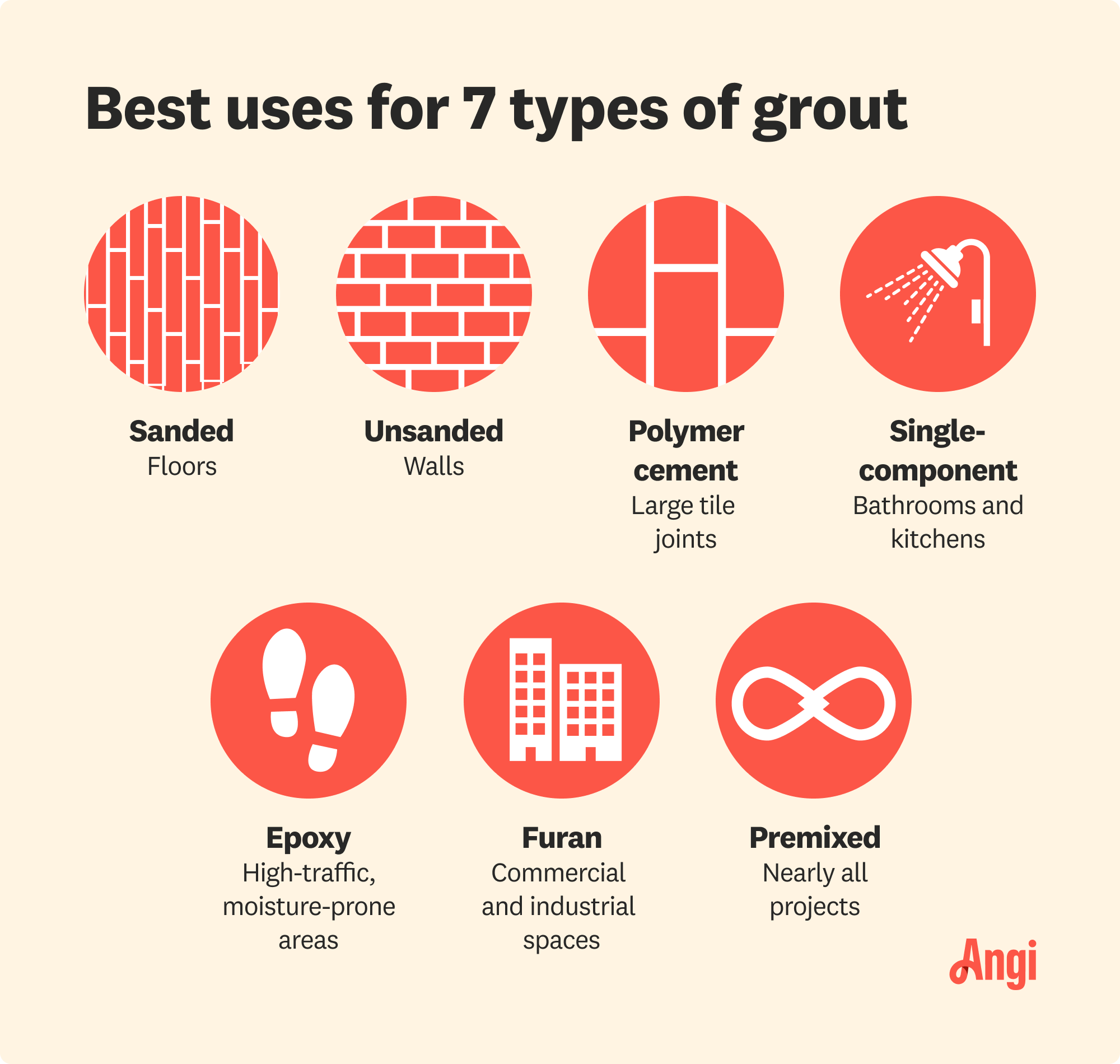7 Types of Grout: Choosing the Best One for Your Next Tile Project
You’ve chosen the tile, now choose the right grout to cement the deal


Choosing tile is a big decision, but choosing the right grout to install it is just as important. The seven major types of grout are sanded, unsanded, polymer cement, single-component, epoxy, furan, and premixed. While all grout secures tiles in place, you’ll want to pick the type of grout that works best with your chosen tile and where it will be in your home to ensure longevity.
| Type of Grout | Ideal Tile Application |
|---|---|
| Sanded | Floors |
| Unsanded | Walls |
| Polymer cement | Large tile joints and high-traffic areas |
| Single-component | Bathrooms and kitchens |
| Epoxy | High-traffic and high-moisture areas |
| Furan | Commercial and industrial settings |
| Premixed | Nearly all projects |
1. Sanded Grout
Sanded grout is a type of cemented grout, and it gets its name because it’s made with particles of sand to make it denser and more durable. Some types of grout crack and shrink over time, but sanded grout is much less likely to do either.
Sanded grout has more stability because the sand keeps it in place, which makes it a great choice for installing floor tiles. However, you’ll want to keep sanded grout away from glass, polished stone, or glazed ceramic tile because the sand particles can scratch up those delicate tiles.
| Pros | Cons |
|---|---|
| Comes in many colors | Longer dry time |
| Budget-friendly | Not good for delicate tiles |
| Durable | Needs to be sealed |
Best for: Flooring
2. Unsanded Grout

Unsanded grout is also a type of cemented grout, but as the name suggests, it doesn’t contain sand. Instead, it has fine mineral particles that make it good for installing wall tiles and delicate tiles that would otherwise be damaged by sanded grout. However, you’ll want to make sure that the joints between your tiles are no wider than 1/8 inch. Otherwise, your grout will be more likely to shrink and crack.
| Pros | Cons |
|---|---|
| Good for delicate tiles | Comes in fewer colors |
| Easy to apply | More expensive |
| No sealant needed | Not good for wide joints |
Best for: Wall tiles and narrow joints
Most types of grout take between 24 and 48 hours to dry. Unsanded grout may need up to 72 hours to dry, whereas epoxy grout requires much less time, around 24 hours. Always check the product info for the most accurate drying times for your product.
3. Polymer Cement Grout
Polymer grout is another cement-based grout that has water-activated polymers added to it. When water mixes with the grout, a chemical reaction creates a stronger water- and abrasion-resistant shield than other cement grouts have. It’s a good choice for larger grout joints (up to 1 and 1/4 inches) and tile applications in commercial and high-traffic areas.
| Pros | Cons |
|---|---|
| Won’t stain or shrink | Flammable |
| Highly water-resistant | Long cure time |
| Good for commercial and residential projects | Could stain tiles |
Best for: Large joints and high-traffic areas
4. Epoxy Grout
Epoxy grout is known for its durability and longevity. This nonporous grout stands up well to water and chemicals, making it a good choice for installing tile in high-traffic areas, including industrial settings. It can be used for both floors and walls, so it makes sense to consider it for bathrooms and kitchens. However, the faster dry time for this type of grout makes it necessary to mix only small batches, so epoxy grout could prove to be a bit of a challenge for DIYers.
| Pros | Cons |
|---|---|
| Highly durable | Hard to work with |
| Fast dry time | Expensive |
| Doesn’t need sealing | Can cause discoloration on porous surfaces |
Best for: High-traffic areas
5. Single-Component Grout
Single-component grout has similar advantages to epoxy grout, but it’s actually made from resin, often urethane or acrylic-silicone. The “single” part of the name simply means that it doesn’t need to be mixed with something else in preparation for tile application.
Single-component grout is nonporous, so it’s easier to maintain than other grouts that will need to be resealed. It stands up well to water, stains, and mold, making it a great choice for high-moisture areas like kitchens and especially bathrooms.
| Pros | Cons |
|---|---|
| Great for high-moisture areas | Sets quickly when exposed to air |
| Mold- and mildew-resistant | More expensive |
| Doesn’t need sealant | Can scratch some surfaces |
Best for: Bathrooms and kitchens
6. Furan Grout

Furan grout is a durable grout made from furan resin and filler, but it has no cement or water like some other grouts. In addition to its excellent durability, furan can stand up to damage from heat or chemicals. For this reason, it is often used for commercial tile installations, like in laboratories and restaurant kitchens. Furan grout can also be used for residential applications, including kitchens and outdoor patios and walkways. However, tile installations with furan grout are best left to a local tile contractor because they require more tools and preparation within rigid temperature limits.
| Pros | Cons |
|---|---|
| Resists heat and chemical damage | Expensive |
| Highly durable | Better left to the pros |
| Good for commercial installations | Harder to maintain |
Best for: Commercial and industrial
7. Premixed Grout
Premixed grout is a DIYer’s best friend for tile installations. Not only is it highly durable, but there’s no measuring or mixing involved—just open the lid and stir. The best part? Most of the aforementioned grouts come in a premixed formula, so you’ve got plenty of options to make home projects run smoothly.
| Pros | Cons |
|---|---|
| Easy to use | Pricey for large products |
| Highly durable | Harder to clean up |
| Available in various types | Can’t use with additives |
Best for: DIY tile installations
How Do I Choose the Right Grout?

Experienced DIYers might want to try their hand at some of the mixable grouts on the list, but beginner and intermediate DIYers might want to head straight for the cans of premixed grout.
Choosing a grout color will depend on your personal preference, although you should know that while some types of grout come in a rainbow of colors, you might be more limited with the type you need for your installation. Before committing to a full wall or flooring project, try out some tiles and grout on a spare piece of wood so you can see how well the combo goes together, especially when the grout dries.
When you use the right type of grout, you avoid damaging the tile. Plus, you’ll see an increase in the longevity of its installation. If you’re unsure which type of grout to use for your home tiling project, consult with a knowledgeable sales associate or reputable local tile installer before getting to work.
















